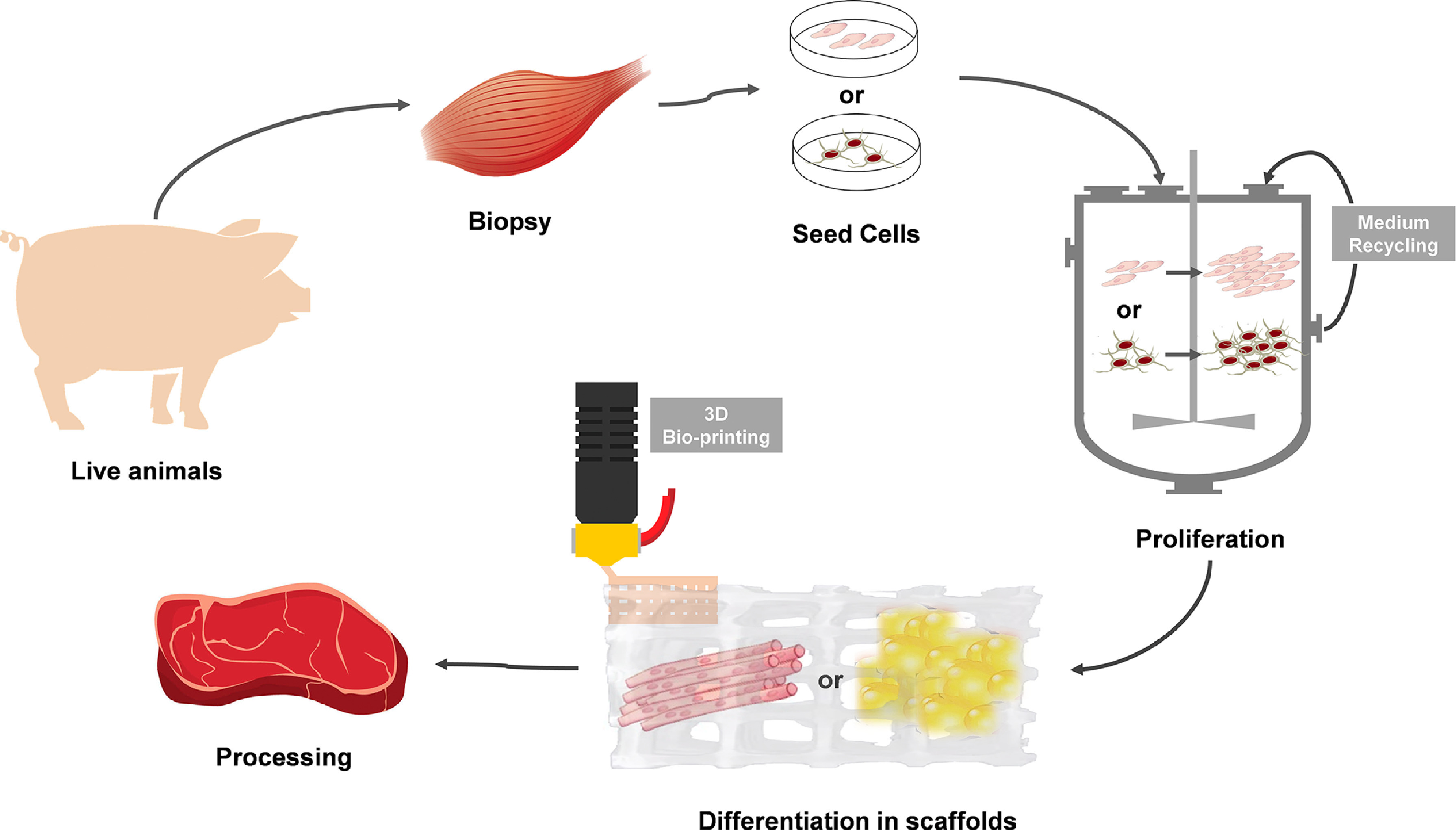Elsevier, Future Foods, Volume 3, June 2021
As future foods, cultured meat is produced by culturing animal cells ex vivo rather than raising and slaughtering animals. It is a promising way to address concerns about resource consumption, environmental pollution, public healthy that associated with conventional livestock production. In the past two years, dozens of cultured meat-related start-ups have been founded and millions of dollars have been raised, demonstrating the high business enthusiasm, broad market prospects and high profitability expected.
Elsevier, Geography and Sustainability, Volume 2, June 2021
After 10 years of the Fukushima Nuclear Accident, Japan decided on 13 April 2021 to release the nuclear wastewater into the Pacific Ocean. It is apparent that Japan has chosen the most cost-efficient way to deal with the contaminated water, however, great opposition and concerns have been aroused internationally due to the harmful ecotoxicological features of radioactive materials. Here we analyze the ecological impacts caused by the nuclear accident and the potential impacts of releasing the nuclear wastewater into the ocean.
Elsevier, The Lancet Global Health, Volume 9, June 2021
Background: COVID-19 spread rapidly in Brazil despite the country's well established health and social protection systems. Understanding the relationships between health-system preparedness, responses to COVID-19, and the pattern of spread of the epidemic is particularly important in a country marked by wide inequalities in socioeconomic characteristics (eg, housing and employment status) and other health risks (age structure and burden of chronic disease).
Elsevier, The Lancet Healthy Longevity, Volume 2, June 2021
Background: Approximately 80% of the 463 million adults worldwide with diabetes live in low-income and middle-income countries (LMICs). A major obstacle to designing evidence-based policies to improve diabetes outcomes in LMICs is the scarce availability of nationally representative data on the current patterns of treatment coverage.
Elsevier, Heliyon, Volume 7, June 2021
Based on the joint HCPMMP parcellation method we developed before, which divides the cortical brain into 360 regions, the concept of ordered core features (OCF) is first proposed to reveal the functional brain connectivity relationship among different cohorts of Alzheimer's disease (AD), late mild cognitive impairment (LMCI), early mild cognitive impairment (EMCI) and healthy controls (HC). A set of core network features that change significantly under the specifically progressive relationship were extracted and used as supervised machine learning classifiers.
Elsevier, She Ji, Volume 7, Summer 2021
Given the growing interest in systemic design, there is a demand for designerly approaches that can aid practitioners in catalyzing social systems change. The purpose of this research is to develop an initial portfolio of designerly approaches that acknowledges social structures as a key leverage point for influencing social systems. This article presents learnings from experimentation with a host of designerly approaches for shaping social structures and identifies four design principles to guide systemic design practitioners in doing this work.
Elsevier, Clinical Simulation in Nursing, Volume 55, June 2021
Background: Simulation-based experiences provide learning opportunities into the world of people living with dementia, however limited research into its effectiveness exists. Methods: A quasi-experimental design was used to examine the impact of the virtual dementia tour on empathetic thinking, understanding and person care. Study participants included carers and multi-health professionals (n = 223). Results: Empathetic understanding of symptoms, its impact on the provision of person-centred practice were all scored as neutral.
Elsevier, Heliyon, Volume 7, June 2021
Toxoplasma gondii (T. gondii) is one of the most pervasive neurotropic pathogens causing different lesions in a wide variety of mammals as intermediate hosts, including humans. It is estimated that one-third of the world population is infected with T. gondii; however, for a long time, there has been much interest in the examination of the possible role of this parasite in the development of mental disorders, such as Alzheimer's disease (AD). T.
Elsevier, The Lancet Planetary Health, Volume 5, June 2021
Background: Stunting rates in children younger than 5 years are among the most important health indicators globally. At the national level, malnutrition accounts for about 40% of under-5 deaths in Ghana. Disease risk mapping provides opportunities for disease surveillance and targeted interventions. We aimed to estimate and map under-5 stunting prevalence in Ghana, with the goal of identifying communities at higher risk where interventions and further research can be targeted. Methods: For this modelling study, we used data from the 2014 Ghana Demographic and Health Survey.
Elsevier, Future Foods, Volume 3, June 2021
As future foods, cultured meat is produced by culturing animal cells ex vivo rather than raising and slaughtering animals. It is a promising way to address concerns about resource consumption, environmental pollution, public healthy that associated with conventional livestock production. In the past two years, dozens of cultured meat-related start-ups have been founded and millions of dollars have been raised, demonstrating the high business enthusiasm, broad market prospects and high profitability expected.

